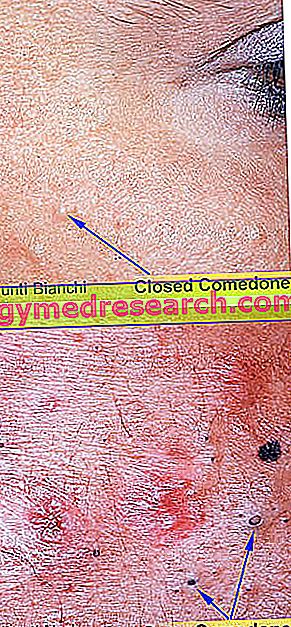
Contraindications
Do not take lidocaine in case of suspected or confirmed allergy / sensitivity to the active ingredient or any other type of paralyzing substance.
Furthermore, lidocaine is strongly discouraged in the following circumstances:
- Hypotension not related to arrhythmias
- Bradycardia: reduction in heart rate below the normal range which, in adults, is 60 beats per minute
- Peacemaker
- Porphyria: clinical syndrome that affects skin and nervous system. A typical sign of porphyria is the emission of very dark red urine.
Recommendations
Before receiving a lidocaine injection, it is recommended to always inform your doctor if you have liver, kidney, heart and circulatory diseases.
After an injection of lidocaine, especially if performed for the control of arrhythmias, it is strongly advised not to start driving: even if rarely, the drug could influence attention more or less significantly.
Although lidocaine should not harm an unborn baby, it is still recommended to inform the doctor of any interesting condition or the search for a conception. Do not use the drug during breastfeeding without first having informed or sought medical advice.
It is advisable to avoid taking food in the hour immediately following the injection of lidocaine, especially after a dental operation. The drug, in fact - widely used to "sleep the tooth" before filling, devitalizations, apicectomies etc. - induces a certain numbness at the level of the lip and throat. Therefore, in extreme cases, the difficulty in swallowing that follows could lead to suffocation.
Immediately alert emergency workers if, after a lidocaine injection, the body reacts negatively to the drug, triggering symptoms such as allergic reaction, hives, difficulty breathing, noticeable swelling of the throat, lips, tongue and face.
Finally, remember to pay particular attention to associating lidocaine with certain drugs, such as muscle relaxants, propanolol and cimetidine. Combination with one of these medications could alter the activity of lidocaine, as well as causing unexpected side effects.
Side effects
Like any drug, lidocaine also has some side effects, which may or may not occur after an injection or following a topical application.
The most common side effects that may arise after lidocaine administration are listed in the table.
Less serious side effects | More dangerous side effects (mostly resulting from a lidocaine injection) |
Redness at the point of application Ecchymosis after lidocaine injection Edema Euphoria (after a lidocaine injection) Dizziness (vertigo) Superficial and not very evident swelling Depigmentation (topical application) Skin exfoliation (topical application) Light numbness in the skin areas where lidocaine is accidentally applied Nausea Nervousness papules itch Drowsiness Vesicles (lidocaine applied to the skin) | Alteration of the state of consciousness Asthenia Headache Dyspnoea (difficulty breathing) Whistling in the ears Hypotension Weak pulse Slow heart rate Anaphylactic reaction Breath weak, quick Sensation of anxiety, agitation, depression Feeling faint Unpleasant perception of too intense heat or cold Drowsiness spasms Blurred vision (typical side effect of lidocaine applied by ophthalmic) |
The side effects derived from the unsuitable use of lidocaine during epidural analgesia deserve further investigation. If the administration of lidocaine during an epidural puncture is not performed correctly, the drug may flow into the sub arachnoid space: in similar circumstances, it is possible for the patient to experience total or partial spinal block, loss of bowel and bladder control, alteration of sexual function and hypotension.
Overdose
In the event of an overdose, it is necessary to immediately alert the rescuers.
The overdose symptoms include:
- Impairment of vision / blurred vision
- Irregular heart beats
- Confusion
- Convulsions
- Depression and cardiac arrest
- Whistling in the ears (tinnitus)
- Respiratory failure
- Numbness
- Excessive heat or cold sensation
- Sleepiness (first sign of elevated plasma lidocaine concentration)
- Muscle spasms
Curiosity
LIDOCAINA + COCAINE
Lidocaine is sometimes used as an adulterant / adjuvant substance in addition to some illegal drugs, first of all cocaine. When taken, cocaine tends to desensitize the gums. Lidocaine, being a local analgesic, causes an even more powerful effect; therefore, cocaine is often adulterated with lidocaine for the reason just explained.



